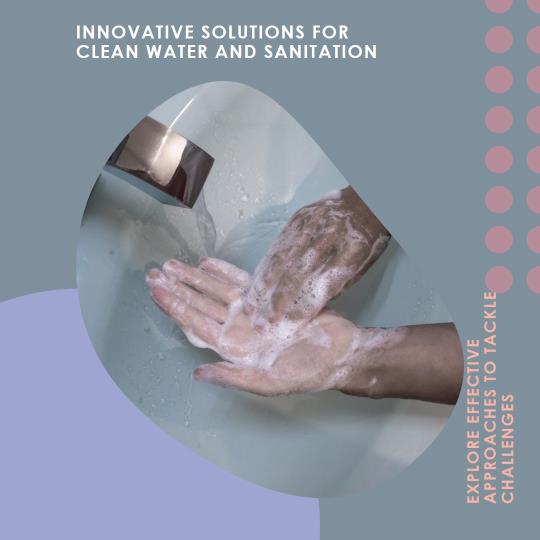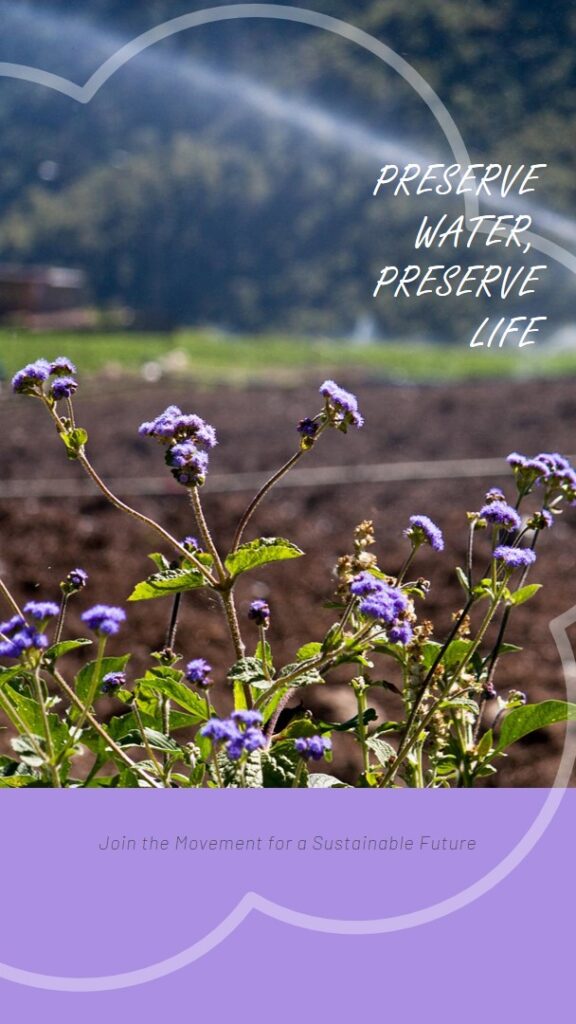Table of Contents
ToggleClean water and sanitation problems and solutions
clean water and sanitation
In our pursuit of a sustainable and equitable world, access to clean water and proper sanitation stands as a cornerstone for human dignity, health, and progress. Despite commendable global efforts, a significant portion of the global population still grapples with the lack of these essential services. This article embarks on an exploration of the intricate challenges surrounding clean water and sanitation, shedding light on innovative solutions that are actively shaping a positive impact. Notably, organizations such as Good Times play a pivotal role in this global endeavor, embodying the spirit of global citizenship and underscoring the urgency of addressing water-related challenges.
Unveiling the Global Water Crisis
Lack of Access
In many developing countries, millions of individuals continue to face the stark reality of lacking access to clean and safe drinking water and proper sanitation facilities. According to the World Health Organization and UNICEF, a staggering 2.2 billion people globally lack access to safely managed drinking water services, while approximately 4.2 billion people do not have access to safely managed sanitation services. This profound lack of access directly contributes to the spread of waterborne diseases, perpetuates poverty, and impedes economic growth.
Health Impacts
Contaminated water sources and inadequate sanitation facilities give rise to an array of health issues, particularly waterborne diseases such as cholera, dysentery, and typhoid. These diseases disproportionately affect children, leading to high mortality rates and hindering their ability to attend school regularly.
Environmental Degradation
Improper sanitation practices and polluted water sources exert detrimental effects on the environment. Chemicals and waste materials from inadequate sanitation systems find their way into water bodies, harming aquatic life and contaminating ecosystems.
Climate Change
The effects of climate change, including droughts and shifting precipitation patterns, exacerbate the challenges of accessing clean water. These changes can lead to water scarcity, further compromising water quality and availability.
Innovative Solutions: Paving the Way Forward
WASH Programs
Water, Sanitation, and Hygiene (WASH) programs play a pivotal role in addressing these challenges. Collaborations between governments, NGOs, and international organizations aim to implement WASH projects that provide access to clean water and sanitation facilities, alongside promoting good hygiene practices. These programs often involve constructing community water sources, building sanitary latrines, and educating communities about proper hygiene.
Technological Innovations
Technology emerges as a crucial ally in resolving water and sanitation issues. Low-cost water purification methods, such as filtration systems and solar disinfection, offer communities access to safe drinking water. Innovative sanitation solutions like composting toilets and biogas digesters simultaneously address waste management and energy production.
Rainwater Harvesting
Rainwater harvesting stands as an effective technique to capture and store rainwater for various uses, reducing dependence on traditional water sources. This approach proves particularly valuable in regions with irregular access to freshwater.
Community Engagement
Empowering local communities and involving them in decision-making processes are integral components of sustainable solutions. Participatory approaches ensure that interventions are tailored to the specific needs and preferences of the communities they aim to benefit.
Government Policies and Regulation
Strong government policies and regulations are essential for ensuring long-term access to clean water and sanitation. Governments can play a vital role in setting standards for water quality, promoting water conservation, and investing in infrastructure development.
Public-Private Partnerships
Collaborations between governments, private companies, and NGOs can facilitate the investment and expertise needed to improve water and sanitation services. These partnerships often lead to innovative financing models and more efficient project implementation.
Education and Awareness
Raising awareness about the importance of clean water, sanitation, and hygiene practices is pivotal. Educational campaigns have the potential to change behaviors and attitudes, fostering more sustainable water usage and improved sanitation practices.
Good Times: A Driving Force for Change
In the collective effort to address the global water crisis, NGOs like Good Times play a pivotal role. Their initiatives contribute to community-based water projects, awareness campaigns, and the implementation of sustainable solutions. By actively participating in these endeavors, Good Times exemplifies the spirit of global citizenship and underscores the urgency of tackling water-related challenges.
The challenges associated with ensuring clean water and sanitation are indeed multifaceted, but viable solutions are within reach. By combining technological innovation, community engagement, government policies, and international cooperation, we can make significant strides toward addressing the global water crisis. Access to clean water and proper sanitation not only improves public health but also contributes to poverty reduction, gender equality, and overall sustainable development.
As responsible global citizens, it is our collective duty to ensure that every individual has the right to clean water and sanitation, paving the way for a healthier and more prosperous future for all.
Frequently Asked Questions
What is meant by clean water and sanitation?
Clean water refers to water that is safe for human consumption, free from contaminants. Sanitation involves the provision of facilities and services for the safe disposal of human waste and the promotion of hygiene.
What is the main goal of clean water and sanitation?
The main goal is to ensure access to clean water and proper sanitation for all, as outlined in Sustainable Development Goal 6 (SDG 6).
What is the importance of water in cleaning and sanitation?
Water is essential for various cleaning and sanitation processes. It is used for personal hygiene, cleaning of surfaces, and disposal of waste, contributing to overall health and well-being. Adequate water supply is crucial for maintaining hygiene standards and preventing the spread of diseases.
Why is clean water and sanitation important to us?
Clean water and sanitation are crucial for preventing waterborne diseases, improving health, promoting economic development, and ensuring a sustainable environment. Lack of access to clean water and sanitation facilities can lead to the spread of diseases, hindering overall well-being and development.
What are the 4 types of sanitation?
The four types of sanitation include personal sanitation, domestic sanitation, public sanitation, and environmental sanitation. Each type addresses different aspects of waste management and hygiene, contributing to overall sanitation goals.
What are 3 methods of sanitation?
Three methods of sanitation include physical methods (cleaning and scrubbing), chemical methods (using disinfectants), and thermal methods (heat treatment). These methods are employed to ensure the elimination of harmful microorganisms and maintain a hygienic environment.
What is sanitation and example?
Sanitation involves the provision of facilities and services for the safe disposal of human waste. An example is the construction and maintenance of sewage systems, which allow for the proper treatment and disposal of wastewater, preventing environmental contamination.
How can we clean water?
Water can be cleaned through various methods such as filtration, boiling, chlorination, and advanced technologies like reverse osmosis. These methods help remove impurities, contaminants, and microorganisms, ensuring the water is safe for consumption and other purposes.
What is a clean water?
Clean water is water that is free from impurities, pollutants, and contaminants, making it safe for human consumption and other purposes. It meets quality standards and poses no health risks to those who use it.

